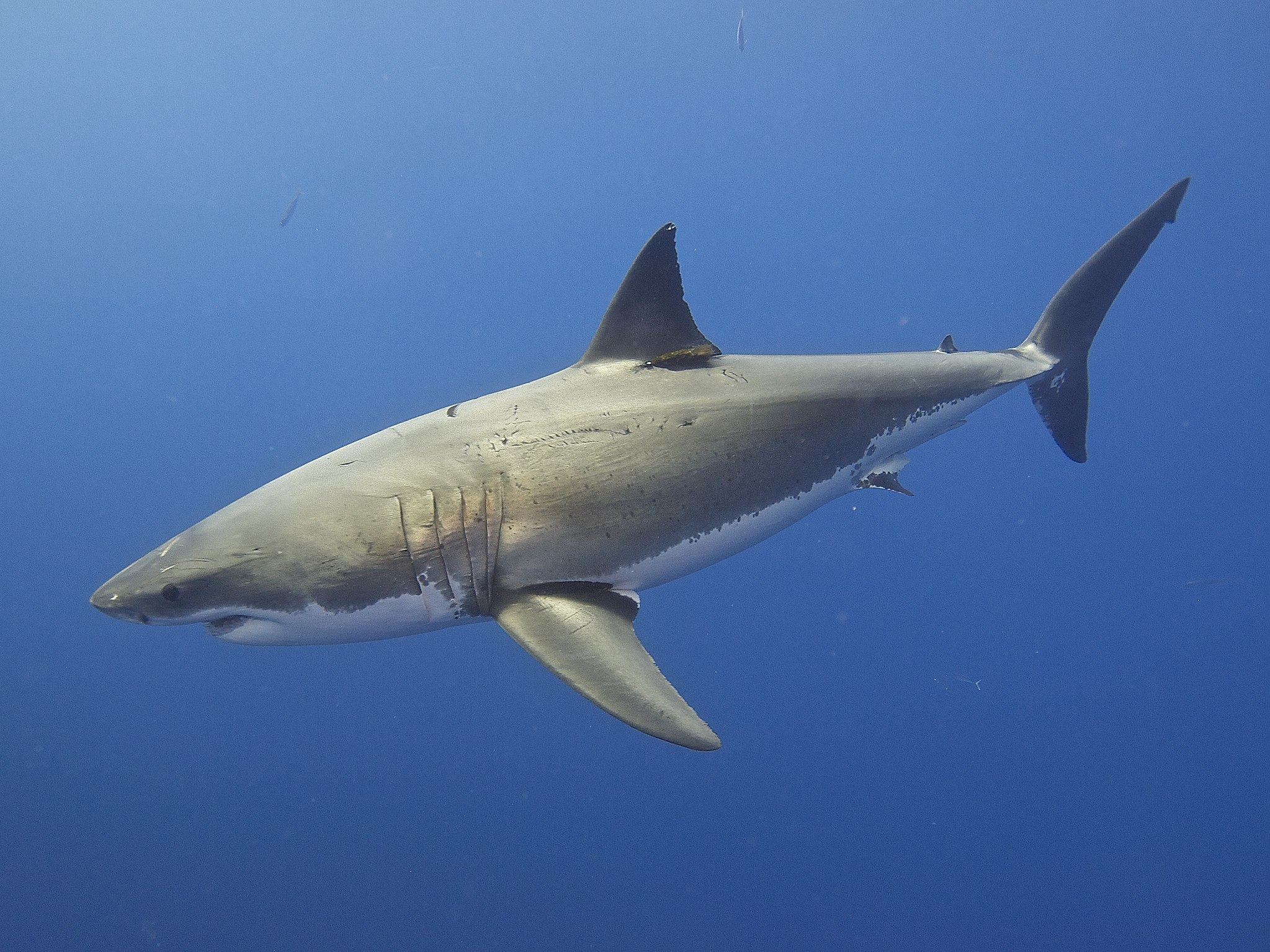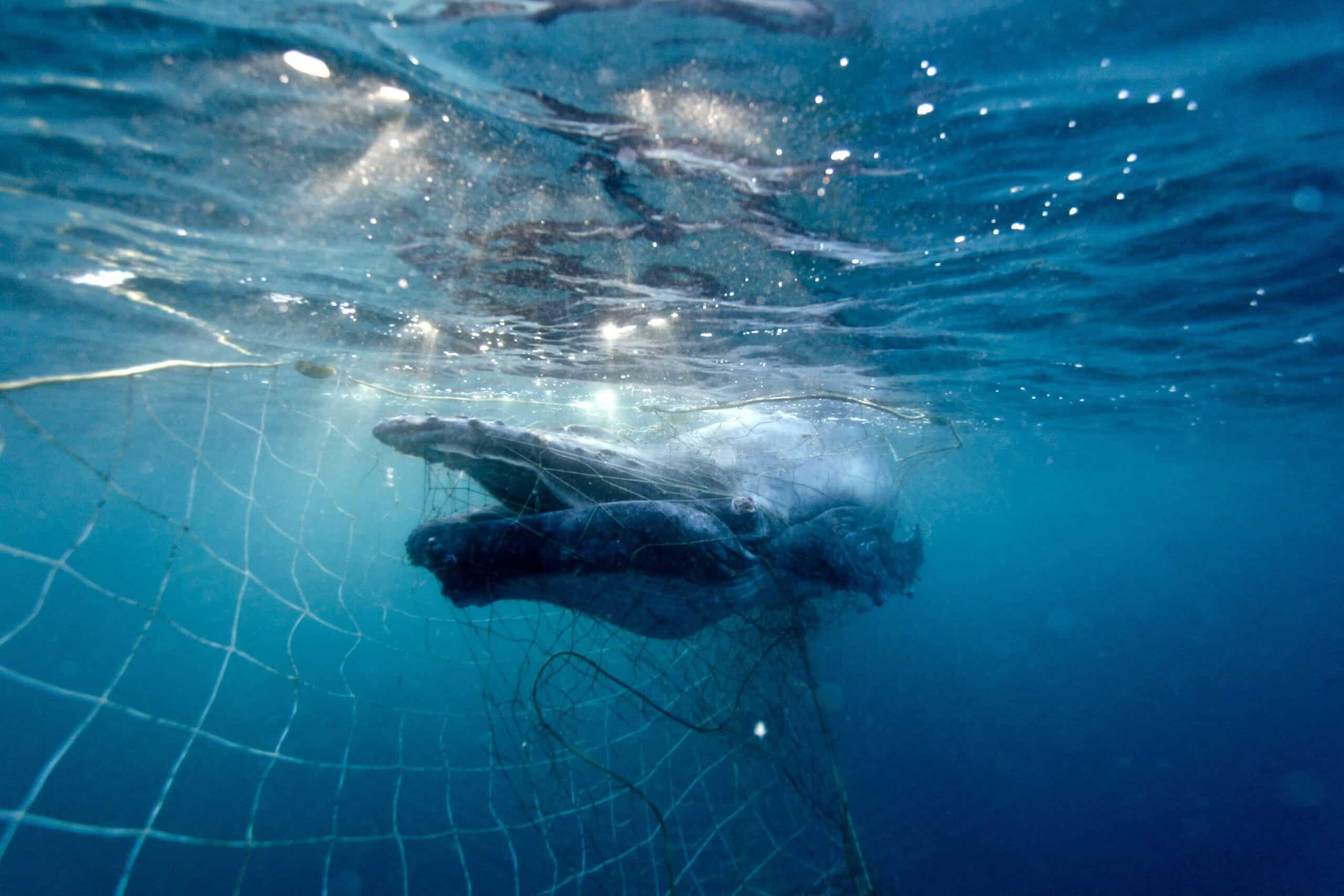Research shows that Australia’s great white sharks are highly related to each other and may consist of fewer than 500 breeding animals. SYDNEY, 24 June 2025: Latest research has found Australia’s great white shark population is much smaller than expected, increasing their vulnerability to further population threats. The population...
Modernising beach safety and moving to non-lethal shark control in Queensland is affordable and supports local industry, reveals a new report by a coalition* of concerned stakeholders including Humane Society International (HSI) and Australian Marine Conservation Society (AMCS).
The Queensland Shark Control Program Modernisation Proposal and Cost Estimate investigated the funding required for non-lethal solutions outlined in the Cardno Review of Alternative Approaches report commissioned by the Queensland Department of Agriculture and Fisheries (QDAF) last year.
Non-lethal, modern solutions considered in the cost estimate include drones, new barrier technologies, and education. Using costs provided by the Australian contractors and businesses named in QDAF’s report, the estimated annual operating cost of non-lethal shark control throughout Queensland is $4.16 million. This is cheaper than the current amount of $17.1 million over four years proposed by Minister Furner in June 2019.
“This report demonstrates how easily Queensland could update their program to keep swimmers and marine wildlife safe,” Lawrence Chlebeck, marine biologist with HSI said. “There’s been 60 years of progress in our understanding of shark behaviour and technology, and it’s long past time for a change.”
“Shark culling does not reduce the risk of shark bite. It’s been independently proven by shark researchers and in legal proceedings. If human safety is truly Queensland’s first priority, then they will heed the science and begin modernising this program immediately.”
Dr Leonardo Guida, Shark Scientist with AMCS said, “No one would be ok with 60 year old safety standards in any other aspect of our lives – be it our workplace, our roads or our homes. So, why should our beaches be any different?”
“The only thing the current program does well is take a terrible toll on marine wildlife. Just this year we’ve seen six humpbacks get caught, and a dugong wash up on a beach dead after drowning in a shark net. Since 2001, thousands of animals have died including dolphins, turtles, rays, and all for a false sense of security,” said Dr Guida.
Last year, HSI challenged the lethal Queensland Shark Control Program in the Great Barrier Reef in the Administrative Appeals Tribunal and won, with the Tribunal declaring the program “unscientific” and out of step with current national and international developments. The Tribunal also stated that there was overwhelming evidence that shark culling does not reduce the risk of shark bite.
A transition to SMART, non-lethal drumlines in the Great Barrier Reef was legally mandated by the Administrative Appeals Tribunal in 2019, and as such, SMART drumlines were not included in the report.
*The coalition consists of HSI, AMCS, Envoy: Shark Cull, Sea Shepherd Australia (Apex Harmony), No Shark Cull and Ocean Impact Organisation


